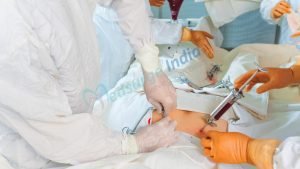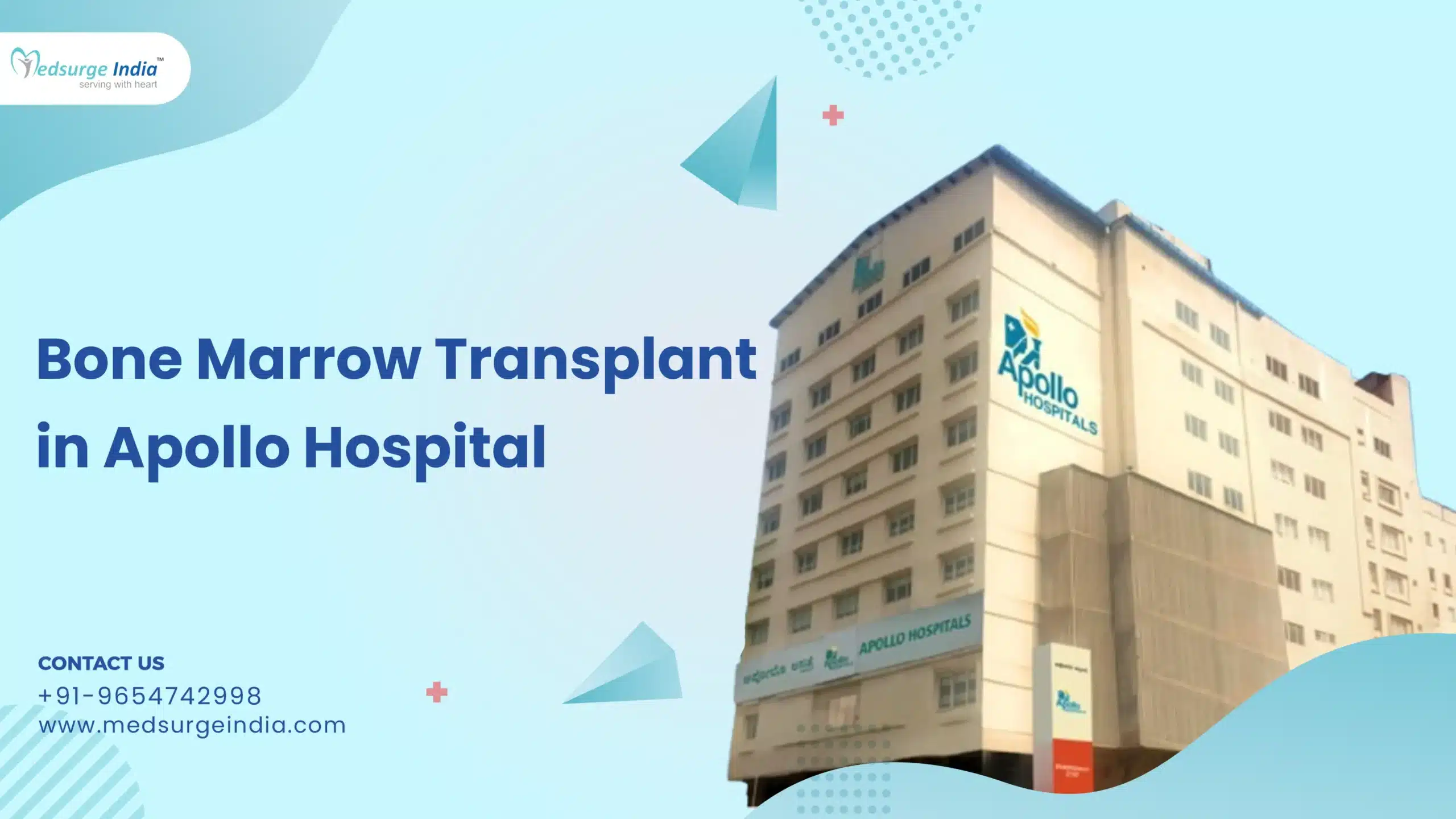
Fanconi Anemia and Its Treatment Options
Bone marrow is a network of soft, spongy connective tissues inside the bone that are responsible for producing red blood cells, white blood cells, and platelets. But there are certain health conditions that can disturb the functioning of bone marrow and Fanconi anemia is one of them.
What is Fanconi Anemia?
Fanconi anemia is a group of blood disorders that stop the bone marrow from producing enough blood cells or stimulate the growth of abnormal blood cells. Basically, it refrains the proper functioning of the bone marrow and produces enough blood cells. When your body is unable to produce healthy red blood cells, the condition is called aplastic anemia.
Fanconi anemia is an inherited form of aplastic anemia. Fanconi anemia (FA) leads to a wide range of physical and mental health conditions since birth which may also include skeletal problems or skin discoloration.
There are possibilities that FA may be diagnosed when the child is born up to 10-15 years of age. It is a rare disease, but can equally hit both boys and girls. However, there is a 10% chance that FA diagnosed in adulthood.
What is Fanconi Syndrome?
Fanconi Syndrome is completely unrelated to Fanconi Anemia. Fanconi Syndrome is a rare disorder that affects the proximal renal tubule after which the kidneys lose their ability to reabsorb substances before they are removed via urine.
The main cause of Fanconi syndrome is still unknown. It may be hereditary or certain factors are responsible for its cause such as:
- Exposure to chemotherapy and radiation therapy
- Kidney transplantation
- Lack of Vitamin D
- Exposure to certain chemicals
- Amyloidosis
- Multiple Myeloma
Fanconi Syndrome Vs Fanconi Anemia
FA is totally different from Fanconi syndrome which is a rare kidney disorder.
- Fanconi anemia is a rare, inherited disease, while Fanconi syndrome is a rare kidney disorder that may or may not be inherited.
- FA occurs due to the low production of blood cells and platelets. On the other hand, Fanconi Syndrome happens due to problems in the filtering tubes of the kidneys.
- FA causes due to genetic mutations, while certain factors are responsible for the occurrence of Fanconi Syndrome.
- Both FA and Fanconi syndrome require different treatments.
What causes Fanconi Anemia?
Fanconi Anemia (FA) is a recessive genetic disorder. This means that if both parents carry a defect in the same FA gene, there is a 25% chance that the child may inherit the defective gene from both parents. If the child inherits defective genes from both parents, he/she has FA.
However, carriers of the genetic defect (for instance, the parents) may not have this disease.
Diagnosis and Screening of Fanconi Anemia
Your doctor recommends diagnostic tests after listening to your signs and symptoms. Although signs may vary from individual to individual, Doctors perform different genetic tests to confirm the diagnosis of FA.
Chromosome Breakage Test: This test detects whether your chromosomes break easier than the normal ones. In this test, a lab technician will take either a blood sample from a vein in your arm or skin cells. Then mix it with chemicals to check how the chromosomes will act.
If you have FA, then there are higher chances that the chromosomes will break and rearrange when mixed with chemicals else nothing will happen.
Cytometric Flow Analysis: This test identifies at what rate the chromosomes grow and divide when exposed to chemicals. In this analysis, the technician will extract some skin cells and then mix them with chemicals.
If your chromosomes break at a higher rate, then you have FA else you are safe.
*chromosomes are long chains of genes.
Mutation Screening: A mutation is an abnormal change that occurs in the DNA sequence. To examine this, geneticists take a sample of the skin cells with special equipment in the laboratory. If there are any mutations in genes, it confirms the diagnosis of FA. As FA mostly occurs at the time of birth, it can be diagnosed at the time of prenatal examination. Hence, prenatal screening also helps in confirming the diagnosis of FA.
What are the signs and symptoms of Fanconi Anemia?
Fanconi anemia mainly occurs due to the production of a low number of oxygen-carrying red blood cells, disease-fighting white blood cells, or blood-clotting platelets.
Your doctor may be able to diagnose FA based on the following signs or symptoms:
- Short stature
- Misshapen body structure such as thumbs or forearms
- Misshapen eyes
- Skeletal issues
- Dark spots on the skin, café au lait spots
- Abnormally shaped head
- Abnormalities in eyes
- Heart problems
- Abnormalities in kidneys
Adults, when diagnosed with FA, may have the possibility of other cancers as well, for example, leukemia, gastrointestinal, gynecological, head, urinary system, and neck cancers at an earlier age.
The worst part is most people or children with FA will experience bone marrow failure. However, the progression of bone marrow failure may vary from person to person.
It also causes infertility in males and females. There are also chances of getting hydrocephalus, fluid accumulation in the cavities deep within the brain.
What are the therapeutic strategies available for people with Fanconi Anemia Treatment?
After diagnosing FA, your doctor will focus on the type of treatments after considering various factors such as medical history, the severity of the disease, age, and overall condition. A team of pediatricians, oncologists, urologists, gynecologists, nephrologists/kidney specialists, and cardiologists coordinate together to treat FA.
Bone Marrow Transplant
FA is an inherited disorder characterized by progressive bone marrow failure. In such cases, doctors perform a bone marrow transplant that involves replacing damaged bone marrow cells with healthy ones from a donor.
Doctors usually consider siblings as the best bone marrow donor whose tissue type matches the recipient. This procedure carries the probability to cure blood count disorders in patients with FA.
Bone marrow transplant is one of the effective options for Fanconi Anemia Treatment. The cost of bone marrow transplants in India depends on the type of transplant chosen. For autologous BMT, the cost is around 15,000 to 17,000 USD, while allogeneic costs around 20,000 USD to 21,000 USD.
Androgen Therapy
Androgens are male hormones that could stimulate blood cell growth. Doctors may also prefer androgen therapy, however, the results aren’t long-lasting. As time passes, the body may lose its potential to produce the required number of blood cells. Hence, you may have to undergo other forms of treatment. Also, it may cause liver problems or other health issues.
Gene Therapy
This procedure involves the replacement of a defected FA gene with a normal healthy copy of genes. In this procedure, a team of doctors coordinates to infuse FA-corrected autologous hematopoietic stem cells that may likely bring desired results. Somehow, this treatment is still experimental.
Growth Factors
In some cases, your doctors may treat FA with synthetic growth factors. Though these are also found in your body, doctors may also prefer man-made growth factors. Growth factors stimulate your body to release more red and white blood cells. Studies are being ongoing if these growth factors help stimulate platelets as well. Growth factors have lesser side effects than androgens.
Surgery
FA may cause serious birth defects in joints including hips, legs, arms, or other parts of the body. To repair such defects, doctors most often recommend surgery. For instance, if a child is born with a ventricular septal defect, a defect in the wall that divides the lower chambers of the heart. In this case, the doctor may perform surgery to close the hole so that the heart can function properly. Children diagnosed with FA may need surgical treatment to treat digestive problems that can badly affect their growth and nutrition.
A birth defect in the windpipe is also one of the FA-related problems that can cause problems while eating, breathing, or swallowing leading to various lung problems. In this case, your doctor performs surgery to divide the two organs for normal eating and breathing.
Which is the best hospital for Fanconi Anemia Treatment in India?
India has numerous super-specialty hospitals with state-of-the-art infrastructure, well-equipped laboratories, cath labs, etc. Talking about the best hospital for Fanconi Anemia Treatment in India, Fortis Memorial Research Institute, Artemis Hospital, and BLK Hospital, New Delhi rank well.
Fortis Memorial Research Institute, Gurgaon is known to have performed approximately 120 transplants per year. It is one of the largest centers known for the treatment of aplastic anemia, sickle cell anemia, and Fanconi anemia.
People from 18 countries across the world prefer to get treatment at Fortis Institute, Gurgaon. It is the first Indian hospital to perform BMT transplants on patients from Trinidad and Tobago. The institute is a solution to various hematological disorders such as bleeding disorders, clotting disorders, anemia, immune deficiency disorders, multiple myeloma, and many more.
About Dr. Vikas Dua!
Dr. Vikas Dua is an internationally recognized Pediatric Oncologist and Bone Marrow Transplant Specialist. With an extensive experience of more than two decades, he has successfully performed pediatric BMTs to treat thalassemia and leukemia from Afghanistan, African countries, Iraq, and India.
He has also been privileged with awards and recognitions for his outstanding contribution in Pediatric BMTs.











